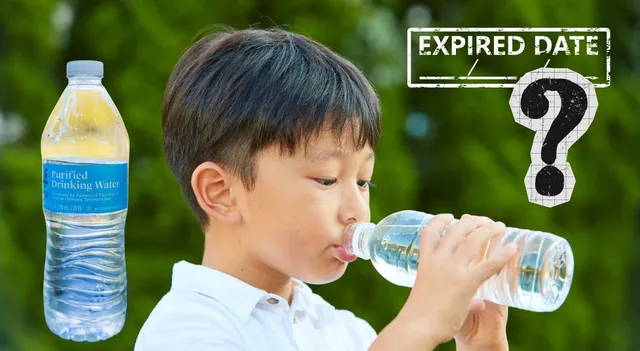- By Ridam Sharma
- Sat, 09 Aug 2025 04:38 PM (IST)
- Source:JND
Water Expiry: A few things never cross your mind unless you really see them. Have you ever read the label of bottled water? You will see an expiry date there, but why would bottled water have an expiry date on it? Does water really expire? The shock comes as no surprise. Isn't water one of the most eternal, constant things on this planet? And yet, each bottle on the shelf bears a ‘best before’ date. So, why on earth would something as pure as water require an expiry date? The reality exists outside of the liquid, in circumstances that most individuals aren't aware of. Before we look into the reasons, let's examine why the tiny printed date is such a big thing.
Water in its natural state does not go bad since it is a stable compound (H2O) and cannot promote the growth of microorganisms if it is adequately sealed. The expiry date on packaged water is largely attributed to governmental regulations that require consumable products to have a "best before" or expiry date to ensure quality control and safety.
Bottled water usually has an expiry date, but this is not an indication that the water itself becomes spoiled. So, what does it actually signify? Let's examine the process up close.
The Main Reasons For The Expiry Date On Bottled Water Are:
1. Plastic Degrading and Chemical Leaching:
The plastic bottle (typically made of PET) will degenerate over time and leach chemicals like BPA, antimony, and other potential hazardous substances into the water. These chemicals are not acutely toxic, but their gradual build-up could create health hazards such as hormonal disturbance and other chronic health problems. This is particularly the case when bottles are subjected to heat or sunlight, which speeds up plastic degradation and contamination.
2. Taste and Quality Alterations:
The plastic from the bottle will absorb odours or transfer a plastic flavour to the water, making it less fresh and palatable after long storage times. Carbonated bottled waters may lose carbonation as well.
Also Read: Why Toilet Doors In Malls And Theatres Have A Gap At The Bottom?
3. Packaging and Tracking:
Expiration dates usually act as a quality control measure to assist manufacturers in maintaining stock rotation, batch identification, and resolving recalls or contamination problems. The expiry date is many times included as part of a code containing the bottling plant and production date details.
4. Regulatory Compliance:
Although water itself does not spoil, food and beverage regulations do mandate expiry or "best before" dates for all edible products, including water, to maintain consumer confidence and product traceability in the event of product failure.
Also Read: Did You Know You Need 24 Crore In Your Pocket To Access This Country's Airport Lounge
Practically, bottled water has a shelf life of between six months and two years, depending on the storage conditions. Storage under cool, dark conditions can maintain water quality, while heat or sunlight accelerates bottle integrity and water taste degradation.
Therefore, the expiration date on packaged water is regarding the package's stability and regulatory norms, not water going bad. It is a guideline to provide the best taste and safety for consumers.

